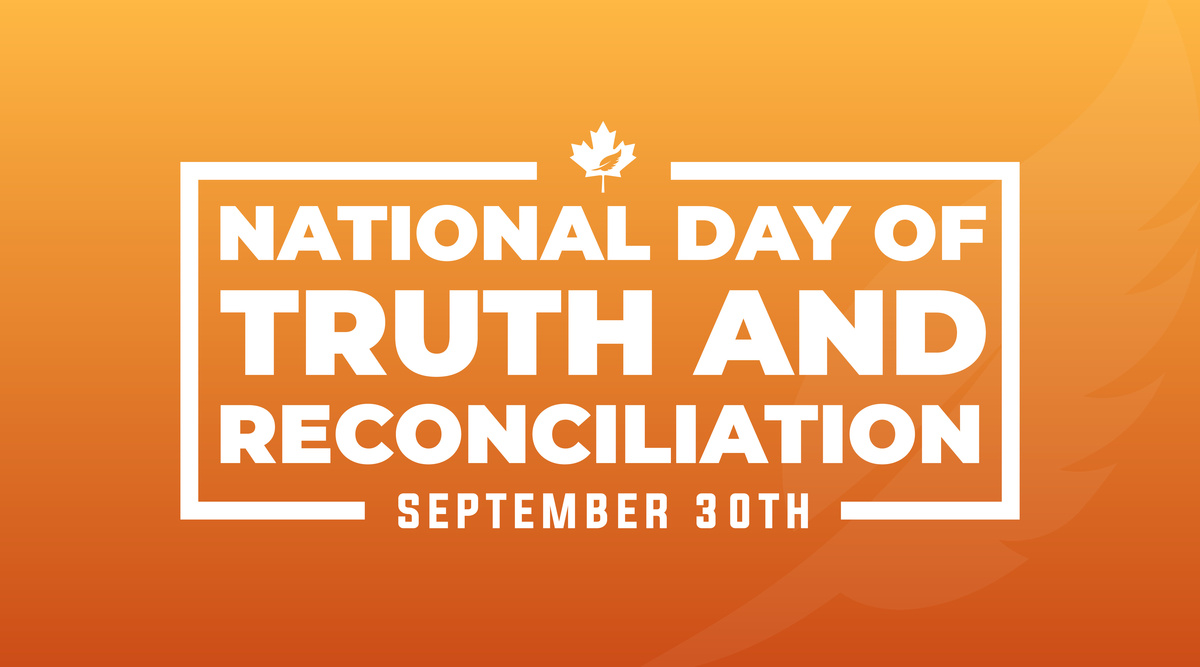Resources for National Day of Truth and Reconciliation
Resources for National Day of Truth and Reconciliation
National Day for Truth and Reconciliation in Canada is a day to honor the lost children and Survivors of residential schools and their families and communities. September 30th is also Orange Shirt Day: a grassroots movement commemorating and honoring those children who survived the residential school system – and those who did not.
“Orange Shirt Day is a legacy of the St. Joseph Mission (SJM) Residential School (1891-1981) Commemoration Project and Reunion events that took place in Williams Lake, BC, Canada, in May 2013.” When Phyllis (Jack) Webstad, a former student of this residential school, was six, she was taken from her family and placed in a residential school. The orange shirt she was wearing – given to her by her grandmother – was taken away from her.
The Orange Shirt is now a symbol of “stripping away the culture, freedom, and self-esteem experienced by Indigenous children over generations.”
In recognition of this day, we reached out to Dr. Jennifer Mervyn, MA, PhD, a Registered Psychologist. She reviewed and recommended the resources below for Indigenous Peoples and Canadians who are struggling with mental health issues. Please share them with anyone who may find them helpful.
—
First Nations Health Authority: This organization provides safe and trauma-informed cultural, emotional, and mental health services to Indigenous peoples in British Columbia, Canada. This website includes links to 24-hour support resources, culturally safe support resources, and services covered by First Nations Health Benefits.
Indian Residential School Survivors Society: This is a provincial-run organization with over twenty years experience providing services to Indian Residential School Survivors. They provide counseling, health support, and cultural support through a variety of therapy methods.
Talk4Healing: This is a 24/7, culturally grounded, fully confidential helpline for Indigenous women available in 14 languages across Ontario. The service provides culturally sensitive crisis counseling, advice, and support, and works with women to find a path to personal healing.
Hope for Wellness: This is a 24/7 online chat counseling service available to all Indigenous peoples across Canada. HelpLine counselors are experienced and culturally competent if you want to talk, are distressed, are experiencing a strong emotional reaction, or are triggered by painful memories. Phone and chat counseling is available in English, French, Cree, Ojibway, and Inuktitut.
CMHA: The Canadian Mental Health Association is one of the oldest voluntary organizations in Canada. It provides direct mental health services to more than 100,000 Canadians through the combined efforts of more than 10,000 volunteers and staff in over 120 communities.
Crisis Services Canada: The Canada Suicide Prevention Service provides both phone and text counseling available 24/7/365 for Canadians thinking about suicide, Canadians who know someone thinking about suicide, or those struggling with a loss from suicide.
Kids Help Phone: This is an e-mental health resource available 24/7 to Canadian kids, youth, and teens. It offers professional counseling, information, referrals, and volunteer-led text-based support to youth in English and French.
